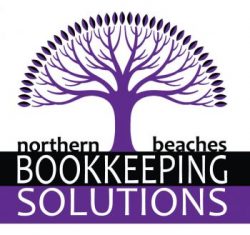How to Prepare for a Financial Audit as a Small Business
A financial audit can be a stressful and time-consuming process for small businesses, but with the right preparation, you can ensure a smooth and successful audit. Whether it’s a tax audit, internal audit, or financial review, preparing well can minimise risks, reduce disruptions, and improve overall financial accuracy. Here’s how to effectively prepare for a financial audit as a small business.
What Is a Financial Audit?
A financial audit is a comprehensive review of a business’s financial statements and accounting records to verify accuracy, completeness, and compliance with accounting standards. Audits may be conducted by external auditors, the Australian Taxation Office (ATO), or internal financial teams.
Why Are Financial Audits Important?
Financial audits provide credibility to financial statements, identify discrepancies, and ensure compliance with accounting regulations. Audits also help detect fraud, improve financial transparency, and instil confidence among stakeholders.
Types of Financial Audits for Small Businesses
1. Internal Audit
Internal audits are conducted by the business’s own finance team or internal auditor. The purpose is to assess financial accuracy, internal controls, and operational efficiency.
2. External Audit
External audits are carried out by independent auditors or accounting firms. They provide an objective review of financial records to verify accuracy and detect potential fraud.
3. ATO Tax Audit
The ATO may conduct tax audits to assess tax compliance, verify deductions, and ensure accurate tax reporting. Tax audits are typically triggered by discrepancies, unusual transactions, or missed deadlines.
How to Prepare for a Financial Audit – Step-by-Step
1. Organise Financial Records
Start by gathering all relevant financial records, including:
- Bank statements and bank reconciliations
- Invoices and receipts for income and expenses
- Payroll records and employee contracts
- Tax returns and BAS lodgements
- Asset register and depreciation schedules
- Loan agreements and financing documents
2. Review Accounting Policies
Ensure that your accounting policies align with Australian Accounting Standards. Review revenue recognition, expense categorisation, and asset valuation practices to confirm they are consistent with industry standards.
3. Reconcile Bank Accounts and Accounts Receivable
Reconcile all bank accounts to verify that recorded transactions match the bank statements. Similarly, review accounts receivable to confirm that all outstanding invoices are accurately recorded and accounted for.
4. Verify Payroll and Employee Records
Payroll is a common area for audit scrutiny. Ensure that payroll records are complete, accurate, and consistent with employment contracts. Confirm that superannuation contributions are up to date and properly recorded.
5. Review Asset Register and Depreciation Schedules
Update your asset register to reflect current assets, disposals, and asset acquisitions. Review depreciation schedules to ensure they align with the applicable depreciation rates and asset lifespans.
6. Prepare Supporting Documentation
Auditors will request supporting documentation to verify financial transactions. Prepare copies of:
- Invoices and purchase orders
- Loan agreements and financing statements
- Lease agreements and rental contracts
- Insurance policies and asset warranties
7. Conduct a Pre-Audit Review
Before the audit begins, conduct a pre-audit review to identify potential discrepancies, missing documents, or accounting errors. This step allows you to resolve issues proactively before the auditor identifies them.
8. Assign a Point of Contact
Assign a dedicated team member to coordinate with the auditor, provide requested documents, and answer questions. This streamlines communication and reduces delays during the audit process.
Common Audit Mistakes to Avoid
1. Incomplete or Disorganised Records
Missing or disorganised records can delay the audit and increase scrutiny. Ensure that all records are complete, properly labelled, and readily accessible.
2. Unrecorded Transactions
Unrecorded transactions can lead to discrepancies and potential tax liabilities. Regularly review bank statements and invoices to ensure all transactions are properly recorded.
3. Misclassification of Expenses
Incorrectly categorising expenses can affect tax deductions and financial reporting. Review expense categories to confirm they align with accounting standards and tax requirements.
Frequently Asked Questions (FAQs)
How often should a small business conduct a financial audit?
Small businesses are typically not required to undergo annual audits unless specified by lenders, investors, or regulatory authorities. However, conducting an internal audit annually can help identify financial discrepancies and improve internal controls.
What triggers a tax audit from the ATO?
Tax audits are often triggered by discrepancies in tax returns, significant changes in income, unusually high deductions, or late tax filings. Staying organised and accurate in record-keeping can help prevent ATO audits.
What should I do if I discover an accounting error during the audit?
If you identify an error, correct it immediately and provide the auditor with an explanation and supporting documentation. Transparency is key to resolving issues and maintaining credibility during the audit.
Conclusion
Preparing for a financial audit requires organisation, accuracy, and proactive communication. By gathering comprehensive financial records, reconciling accounts, and reviewing accounting policies, you can ensure a smooth and successful audit process. Need help preparing for an audit? Contact Northern Beaches Bookkeeping Solutions for expert bookkeeping and audit support.
